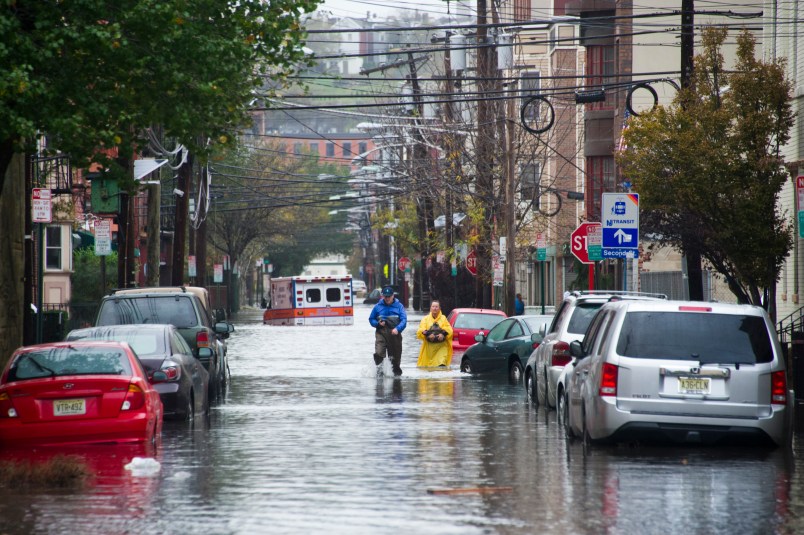WASHINGTON (AP) — President Barack Obama is set to sign into law a bipartisan bill relieving homeowners living in flood-prone neighborhoods from big increases in their insurance bills.
The legislation, which cleared Congress on Thursday, reverses much of a 2012 overhaul of the government’s much-criticized flood insurance program after angry homeowners facing sharp premium hikes protested.
The Senate’s 72-22 vote sent the House-drafted measure to Obama. White House officials said he’ll sign it.
The bill would scale back big flood insurance premium increases faced by hundreds of thousands of homeowners. The measure also would allow below-market insurance rates to be passed on to people buying homes in flood zones with taxpayer-subsidized policies.
Critics say Washington is caving in to political pressure to undo one of the few recent overhauls it has managed to pass.
“While politically expedient today, this abdication of responsibility by Congress is going to come back and bite them and taxpayers when the next disaster strikes,” said Steve Ellis, vice president of Taxpayers for Common Sense, a Washington-based watchdog group. “Everyone knows this program is not fiscally sound or even viable in the near term.”
The hard-fought 2012 rewrite of the federal flood insurance program was aimed at weaning hundreds of thousands of homeowners off of subsidized rates and required extensive updating of the flood maps used to set premiums. But its implementation stirred anxiety among many homeowners along the Atlantic and Gulf coasts and in flood plains, many of whom are threatened with unaffordable rate increases.
Their properties originally were built to code but subsequently were found to be at greater flood risk. Such “grandfathered” homeowners currently benefit from below-market rates that are subsidized by other policyholders, and the new legislation would preserve that status and cap premium increases at 18 percent a year. The 2012 overhaul required premiums to increase to actuarially sound rates over five years.
Another provision, eagerly sought by the real estate industry, would allow home sellers to pass taxpayer-subsidized policies on to the people buying their homes instead of requiring purchasers to pay actuarially sound rates immediately, as required by the 2012 law. The new rates are particularly high in older coastal communities in states like Florida, Massachusetts and New Jersey, and have put a damper on home sales as prospective buyers recoil at the higher, multifold premium increases.
The measure also would give relief to people who have bought homes after the changes were enacted in July 2012 and therefore faced sharp, immediate jumps in their premiums; they would see those increases rolled back and receive rebates.
“While it is important to put this program on sound financial footing, middle-class families should be able to afford the insurance they need to stay in their homes,” White House spokesman Bobby Whithorne said.
Thursday’s bill was written by House Majority Leader Eric Cantor, R-Va., and Rep. Michael Grimm, R-N.Y., with input from Democrats like Rep. Maxine Waters of California, whose votes were critical to House passage last week.
“We’ve solved a very short-term problem and made it a long-term problem,” said Sen. Tom Coburn, R-Okla. “We didn’t really do our work because we were in such a hurry to take the political pressure off of the increases in the flood insurance rates.”
People whose second home is in a flood zone and those whose properties have flooded repeatedly would continue to see their premiums go up by 25 percent a year until reaching a level consistent with their real risk of flooding.






